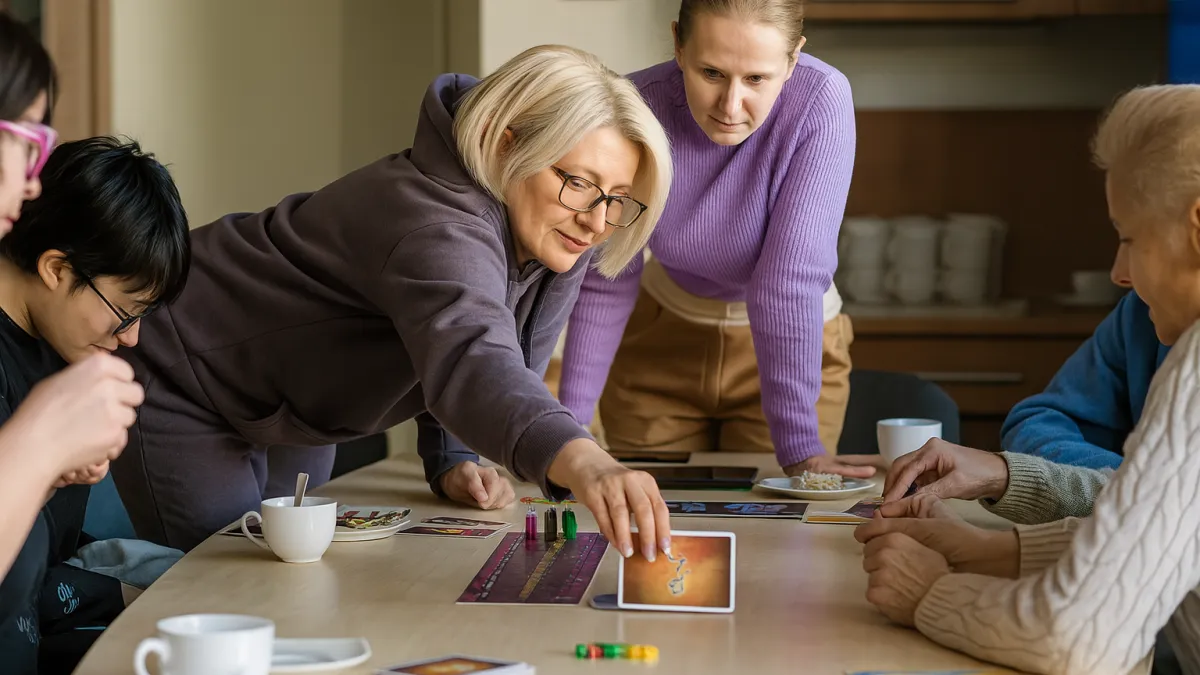Η παρούσα έκθεση παρουσιάζει βασικά συμπεράσματα από επτά οργανώσεις που βοηθούν πρόσφυγες στην Ευρώπη. Στο πλαίσιο του προγράμματος Caring to Include, προσδιορίζει τις προκλήσεις, τις ορθές πρακτικές και τις σαφείς προτεραιότητες για τη βελτίωση της ψυχικής ευεξίας του προσωπικού και την ενσωμάτωση προσεγγίσεων που λαμβάνουν υπόψη τα τραύματα.
Κύρια ευρήματα
Τα ευρήματα βασίζονται σε έρευνες, συνεντεύξεις και συνεργασία με εμπειρογνώμονες, συμπεριλαμβανομένων ατόμων με εμπειρία ως πρόσφυγες. Με βάση εκτενείς πληροφορίες από το προσωπικό, τους εθελοντές, τους πρόσφυγες και τους εμπειρογνώμονες, η έκθεση επισημαίνει επείγουσες προκλήσεις και πρακτικές προτεραιότητες σε δύο βασικούς τομείς:
Ευημερία του προσωπικού
Η επαγγελματική εξουθένωση είναι ευρέως διαδεδομένη λόγω, μεταξύ άλλων, του υψηλού φόρτου εργασίας, της έκθεσης σε τραυματικές εμπειρίες, της οργανωτικής δυναμικής και του εχθρικού πολιτικού περιβάλλοντος.
Οι προτεραιότητες περιλαμβάνουν:
- Στρατηγικές οργανωτικής ευημερίας, συμπεριλαμβανομένης της πρόσβασης σε εκπαίδευση.
- Βελτίωση της διοικητικής εποπτείας και της επαγγελματικής υποστήριξης για την ψυχική υγεία.
- Δομική υποστήριξη μεταξύ ομοτίμων και πρόσβαση σε εξωτερικούς εμπειρογνώμονες.
Προσεγγίσεις που λαμβάνουν υπόψη το τραύμα
Οι περισσότερες οργανώσεις ενσωματώνουν ορισμένες αρχές που λαμβάνουν υπόψη το τραύμα, αλλά λίγες το κάνουν συστηματικά.
Οι προτεραιότητες περιλαμβάνουν:
- Ενσωμάτωση αρχών που λαμβάνουν υπόψη το τραύμα στις κατευθυντήριες γραμμές και την παροχή υπηρεσιών.
- Ενίσχυση της ικανότητας αναγνώρισης και αντιμετώπισης του τραύματος.
- Συμμετοχή ατόμων με βιωματική εμπειρία στη λήψη αποφάσεων.
Διάβασε ολόκληρο το report
Comparative Report
(11.2 MB)
Σχετικά με την έρευνα
Η έκθεση συντάχθηκε από επτά ΜΚΟ στην Κροατία, την Κύπρο, την Εσθονία, την Ελλάδα, την Ουγγαρία, τη Μάλτα και τις Κάτω Χώρες. Η έρευνά μας περιελάμβανε:
- 82 πρόσφυγες που συμμετείχαν σε διαβουλεύσεις.
- 105 μέλη προσωπικού και εθελοντές που συμμετείχαν σε έρευνες/συνεντεύξεις.
- 53 εξωτερικούς εμπειρογνώμονες και συνεργάτες που συμμετείχαν σε διαβουλεύσεις.
Τα ευρήματα αποτελούν τη βάση για δύο πρακτικά εργαλεία (που θα κυκλοφορήσουν σύντομα):
- Ένα για την ψυχική ευεξία του προσωπικού και των εθελοντών.
- Ένα για πρακτικές που λαμβάνουν υπόψη τα τραύματα στις υπηρεσίες για πρόσφυγες.
Μέρος του Caring to Include
Το Caring to Include είναι μια τριετής πρωτοβουλία που συνδέει ΜΚΟ που βοηθούν πρόσφυγες σε όλη την Ευρώπη με σκοπό τη βελτίωση της ένταξης, της ανθεκτικότητας και της ψυχικής ευεξίας μέσω της ανταλλαγής γνώσεων, της κατάρτισης και της υπεράσπισης.
Διάβασε περισσότερα για το Caring to Include


